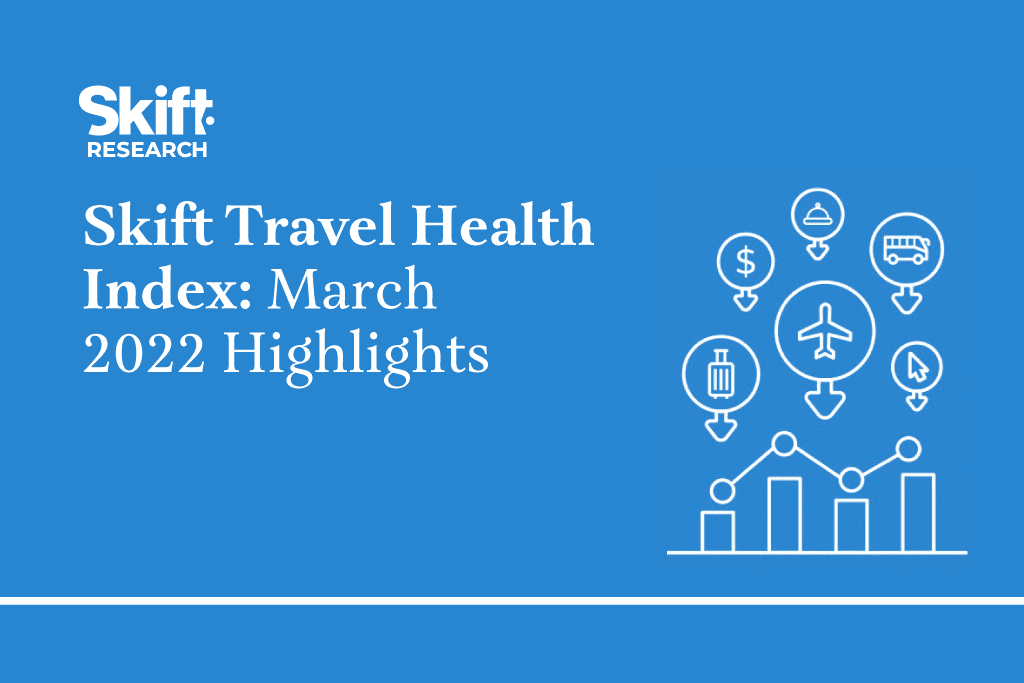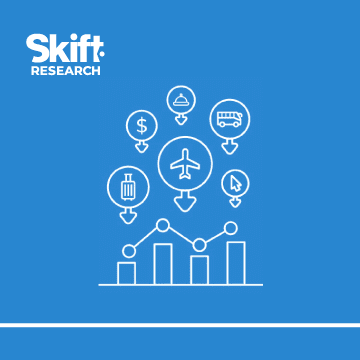Skift Take
Poor travel performances in Russia and China, which did not come as a surprise, suppress an otherwise strong continuation of travel’s recovery in March 2022 that finally saw Japan make some gains, according to our Skift Travel Health Index.
As borders are reopening, Japan is finally seeing some improvements in its travel performance, according to the latest update of the Skift Travel Health Index.
The country eased border controls imposed to counter the pandemic since March 2020. From the beginning of March 2022, authorities raised the number of people allowed to enter to 5,000 a day, from 3,500 before.
These are small steps into the right direction, but the country, once a leading tourist beacon, still has a ways to go. The country has seen some uptick in performance over the past months, with tour operators starting to sell tickets for future trips in preparation for a reopening, Japan remains one of the worst performing countries in our Index. Travel performance remains below 50 percent of pre-pandemic levels.
Indonesia, Thailand, and Singapore are also performing well, as these countries are continuing to open up. At the end of February and early March, Singapore started allowing fully vaccinated travelers from countries including Hong Kong, Qatar, Saudi Arabia, the United Arab Emirates, Thailand, and Israel back in.
Thailand has eased its rules around testing upon entry, and Indonesia opened a corridor with Malaysia on March 1.

Global Travel Performance Sees Slight Improvement
The month of March saw a slight improvement in the global score of the Skift Travel Health Index, although the large jump from the previous month could not be emulated. The global average score now stands at 75, compared to a baseline of 100 in March 2019.
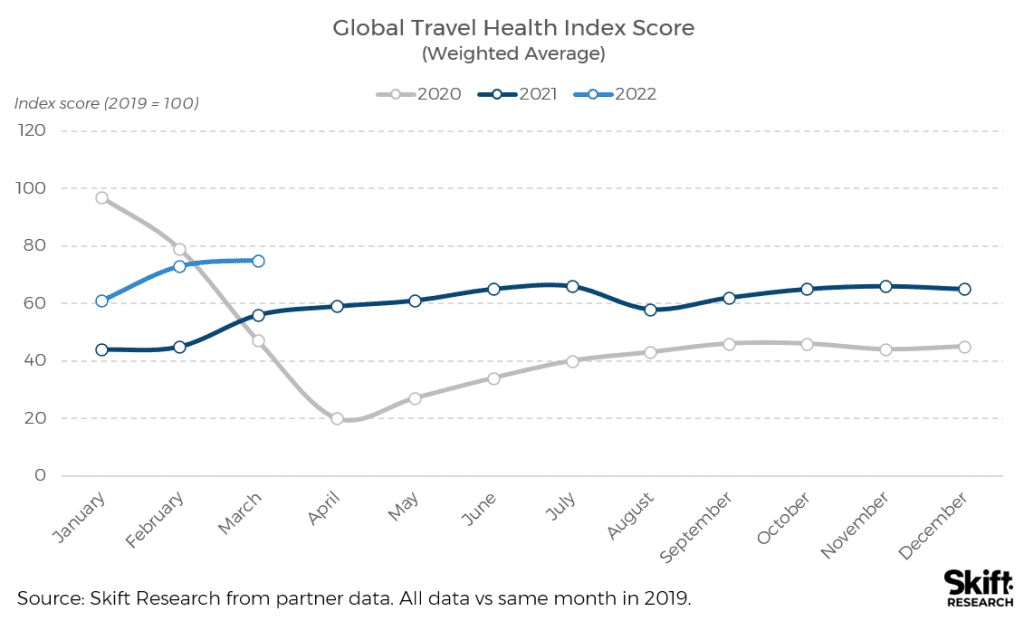
Russia and China See Travel Performance Worsen
At the bottom of our ranking, the war in Ukraine continues to weigh heavily. That said, the impact does not seem to have expanded beyond the direct vicinity of the conflict, with most European countries performing well in March.
Russia is seeing the steepest decline in performance of any country during March, with international sanctions continuing to suppress performance, although domestically travel performance remains relatively strong, and even internationally Russians continue to have options to travel.
At the end of March, Russian president Vladimir Putin signed a bill to help stimulate domestic aviation, setting aside around $1 billion to compensate Russians who book domestic trips. Exact details are unknown, but it is likely the scheme will work as a cash back service, copying earlier schemes introduced at the beginning of the pandemic. Back then, local tourism authorities would pay up to 20 percent back for hotel and tour reservations made through Russian online travel agents (OTAs).
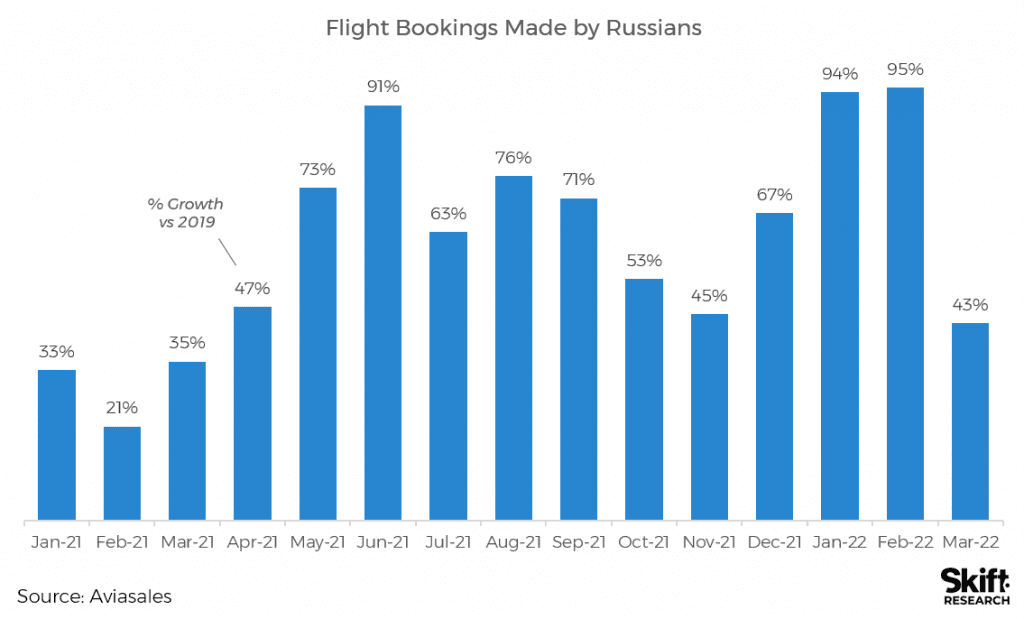
China is another country with weak performance, as it is struggling with a new wave of Covid cases, instigating city lockdowns and mass testing. When looking at the numbers, China still had one of the lowest new case rates of all the countries we track, but it did see a strong month-over-month increase in cases (albeit from a low base).
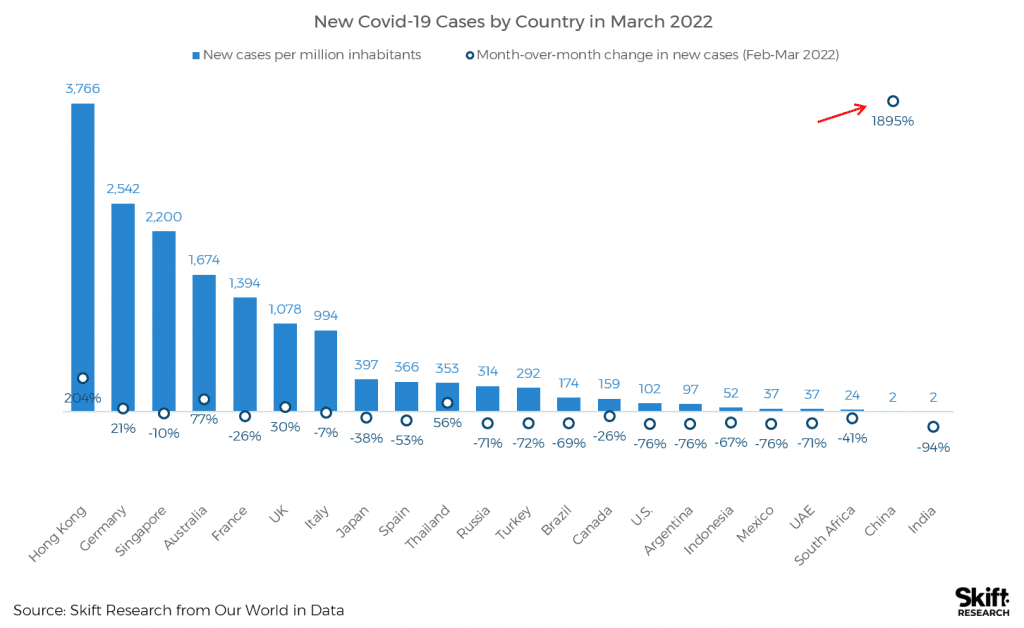
The impact of the country continuing to hold on to a strict zero-Covid policy is felt by the travel industry. Data from our data partner Shiji Group shows that new hotel bookings and room nights were down to early pandemic levels after a year of performing pretty consistently at pre-pandemic levels or better.
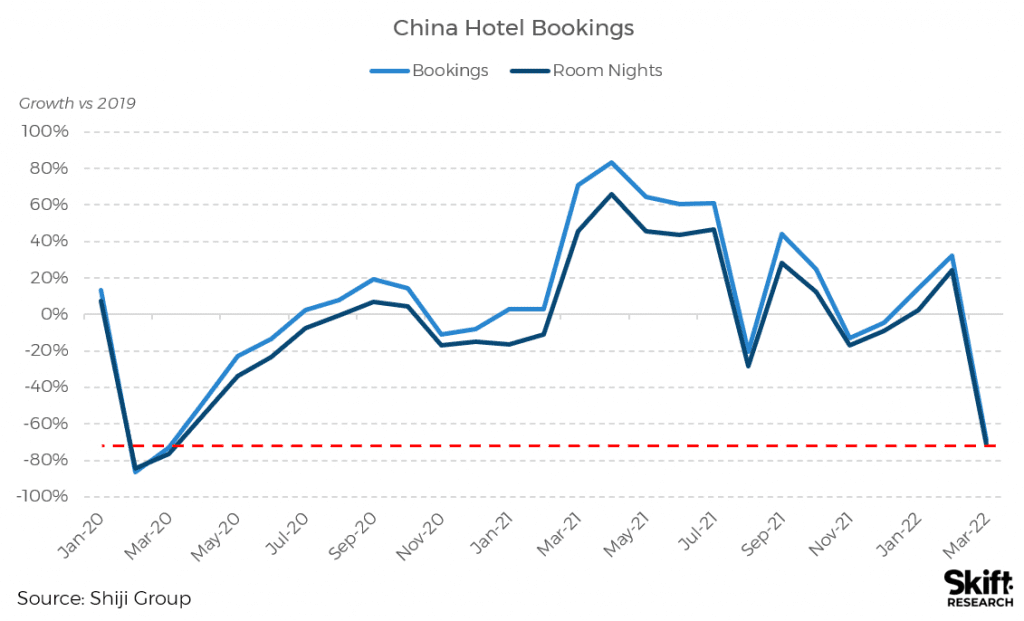
Get Skift Research
Skift Research products provide deep analysis, data, and expert research on the companies and trends that are shaping the future of travel.
Have a confidential tip for Skift? Get in touch
Tags: china, coronavirus, covid-19, Russia war, tourism
